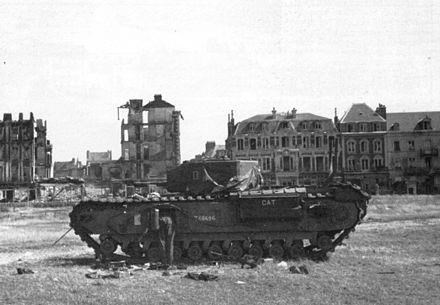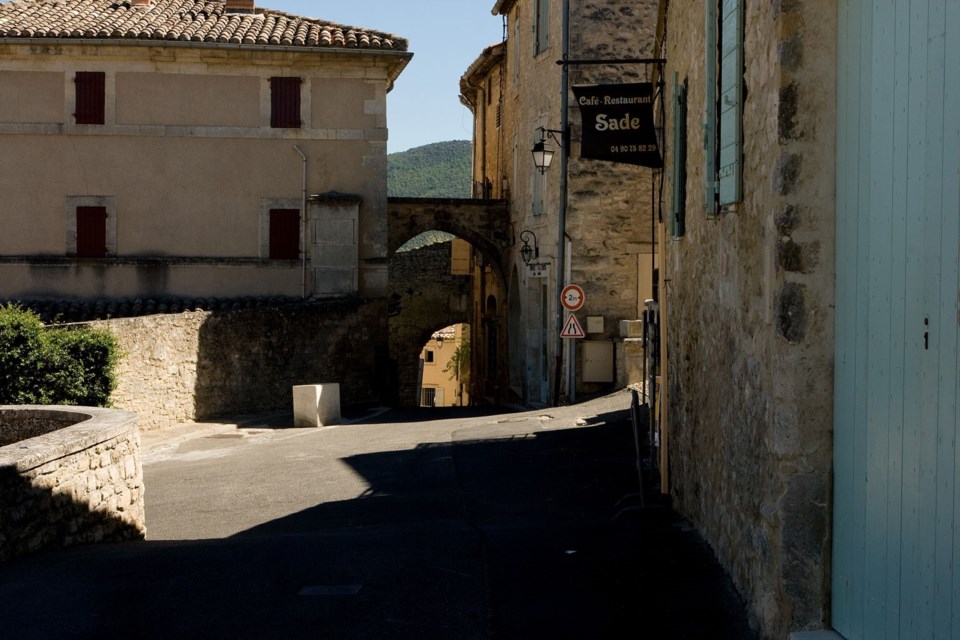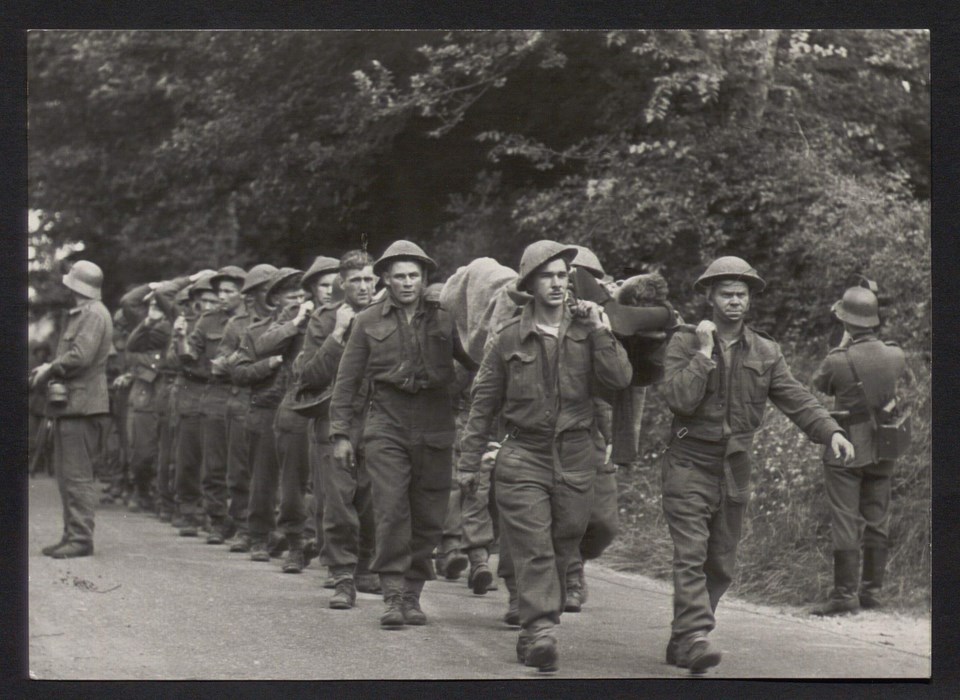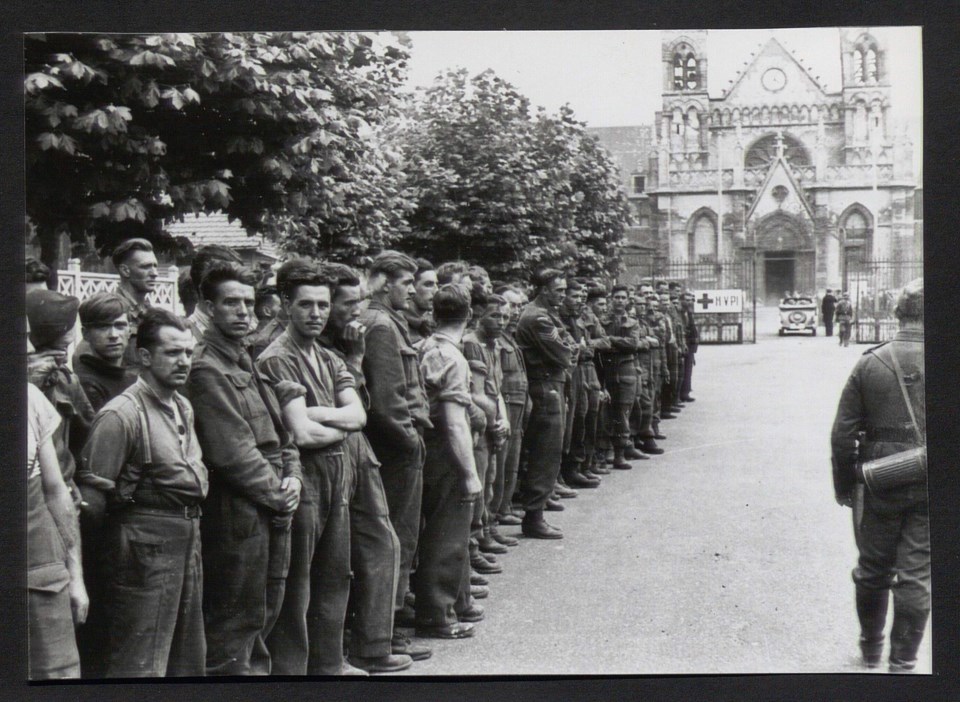The Raid on Dieppe, France, on August 19, 1942 was a catastrophe. Canada supplied the most troops and suffered the most casualties. In total, 907 Canadians were killed; 2460 were wounded and 1946 became Prisoners of War.
According to the Canadian Encyclopedia “… the Royal Canadian Air Force lost 13 planes and 10 pilots, out of 106 Allied aircraft and 81 airmen lost overall.”
The Purpose of the Raid has been argued about since the day it was launched. It is more important for Canadians to remember the fallen and the Dieppe Veterans.
Names of the Casualties and Prisoners were not completed for many weeks after the Raid, and some were not known for months.
Moral on the Home Front
The details and the losses were kept secret. To sustain confidence in the progress of the War, glowing article were often written. Today we call those articles, propaganda.
The following two articles written in support of the War. They give an understanding of how propaganda worked.
Private James Stuart, L12663, ‘B Coy, SSR, of Moose Jaw is the main subject of the article. He survived the Raid and the War. It is assumed he moved the B.C. after the war.
(James Stuart may have been at the Fracas on Main-Street on November 4, 1939)
There is also the description of action taken by A/L/Sgt W. Howard Graham of Swift Current L12063, South Saskatchewan Regiment who was wounded at Dieppe.
Moose Jaw Times Herald, Tuesday, September 1, 1942
“Silver” Stuart Was At Dieppe, Newsman Writes
“The exploits of a “Moose Jaw Lumberman”, ‘Silver’ Stuart, during the daring and successful invasion of Dieppe recently are recounted by Wallace Reyburn, Montreal newspaperman, who accompanied the South Saskatchewan Regiment in its landing on the beaches.
“Reyburn’s account of the battle was given in the “Montreal Standard,” of which he is the London correspondent and it gives a stirring picture of “Silver” Stuart in action.
“The ‘Silver’ Stuart in question is probably Private James Stuart, L12663 of the South Saskatchewan Regiment whose home is at 1033 Fourth Avenue Northeast, Moose Jaw.
“A telephone inquiry to his home as to whether the ‘Silver’ Stuart of Reyburn’s story was Private James Stuart brought the reply, “Mother thinks so.” (Editor: Mother was probably Isabelle Patience Stuart)
“Asked as to the ‘Silver and was he known by that name here’ the answer was that he was in the habit of greeting friends with the cry, “Hi ho Silver,” and that may have led to his being nicknamed ‘Silver’ by his army comrades in the South Saskatchewan Regiment.”

From The Globe and Mail Monday, September 8, 1942
Commandos Fought in Our Garden at Dieppe – Nazis Torn Apart
Editor: In reality the South Saskatchewan Regiment suffered a casualty rate 51%.
“Silver Stuart, a Moose Jaw lumberman, saw two Nazis poised to throw stick grenades. He tore them to pieces with his bayonet. It was so, that the battle started.
“There were always two great beds of scarlet geraniums in the gardens by the swimming pool in front of the Grand Hotel in Dieppe. They were red with blood on that August morning.
“Around Sade’s cafe the fight was fierce, for whoever held it controlled the main street and the road that went at right angles toward Varengeville, where the Fighting French were attacking, and Petit Abbeville, which was the objective. In the middle of it Sade's alarm clock went off, scaring everybody far worse than mortars and machine guns, for the men thought it was some special kind of mine. Then they burst out laughing. Sade had set it for 6 o’clock, but he didn't need it to waken him that morning.”
Editor: The Sade Café today
“Poor devil, if he is still alive; he and his wife put every minute of those twenty years between the wars into their work, building up their business. They were hard Normandy people who loved money only next to their two sons, Claude and Michel, and for these past two years they have been serving their good cider and Calvados to ‘squarehead’ Nazis from beyond the Rhine who paid them in phony marks. And yet, I wonder if Sade did not cheat them. There were few people who could ever get the better of him.”
Garden Filled With Flowers
“We liked especially the corner of our garden from which we looked over the little valley toward the sea. There was the green of the water-meadows, the white of the chalk cliffs and the blue of the Channel. In our garden there were always so many flowers – tulips and daffodils and mugueys in the spring; in the summer the roses we had planted and pruned, zinnias, snapdragons land hydrangea bushes in patches of pink and pale blue; and a wall covered by hollyhocks and “Dorothies” that hung in great masses of bloom.
“It was there we took breakfast and coffee after lunch and sat and gossiped in the evenings. Sergeant Howard Graham of Swift Current, Saskatchewan, (Editor: Graham was wounded at Dieppe but survived the war) spotted a Nazi sniper up there who was doing deadly work picking off the men down by the tennis courts.
“‘I’m going after him,’ he said, packing his pockets full of grenades, and he started climbing the steep bank in front of where the Saint-Perriers used to live. The fellows saw him go and heard a bang. ‘I got him,’ Sergeant Graham reported to his fellows as he rejoined his ranks.
“The noises that came up to using our garden from the village below us were so friendly, so comfortable – “Bon soir,” in the Normandy accent which turns the “o” into an “ae”; a phonograph playing jazz; the laughter of boys and-girls down by the sea; ducks protesting in the meadow against being driven home for the night; a dog barking on a farm across the valley. And there was always, for undercurrent, the sound of the waves breaking on the pebbled shore of the bay between the cliffs.”

Editor: The Sade Café today
“Poor devil, if he is still alive; he and his wife put every minute of those twenty years between the wars into their work, building up their business. They were hard Normandy people who loved money only next to their two sons, Claude and Michel, and for these past two years they have been serving their good cider and Calvados to ‘squarehead’ Nazis from beyond the Rhine who paid them in phony marks. And yet, I wonder if Sade did not cheat them. There were few people who could ever get the better of him.”





